Cloud Hosted PBX Systems
7 Factors Affecting Cloud-Hosted PBX Pricing in South Africa
A robust phone system is pivotal for any business, directly impacting customer relations and internal efficiency. As technology advances, many South African companies are transitioning from traditional setups to cloud-hosted PBX systems, drawn by their promise of feature-rich capabilities and cost-effectiveness.
This shift is part of a broader trend towards cloud solutions, which offer greater flexibility and scalability compared to their on-premise counterparts. If your business is considering upgrading to a cloud-hosted PBX, it’s essential to understand the pricing dynamics involved.
This guide delves into the key factors that influence the cost of cloud-hosted PBX services in South Africa, aiming to equip you with the knowledge to navigate this important decision.
Key takeaways:
- Once-off Cloud PBX costs: Initial expenses may include fees related to your internet infrastructure, number porting, other aspects of the setup process.
- Monthly hosted PBX costs: Recurring charges are typically based on user extensions, and usage patterns.
- Costs associated with additional features and services: Options including advanced features and the choice between managed or unmanaged services can also influence initial and recurring costs.
Tabl of contents:
- What Is A Cloud-Hosted Telephone System
- How Much Do Cloud PBX Systems Cost?
- 7 Factors That Affect Cloud PBX Pricing
- Choose Your Cloud Phone System Pricing Plan And Get Connected Today
What Is A Cloud-Hosted Telephone System?
A cloud-hosted phone system is a phone system that is stored and accessed on a private server and paid for as part of a subscription service. Many businesses nowadays are pursuing a hosted PBX solution to reap the benefits of a feature-rich cloud-based communication system that mitigates the need to rely on landlines and complex PBX hardware
We offer exclusive packages and price plans for our United Voice Cloud PBX solution. Our goal is to provide you with the best solution to fit your needs.

How Much Do Cloud PBX Systems Cost?
Cloud PBX pricing can depend on a number of key factors. Some of the primary influences on hosted PBX cost include the size of your team, your internet service, your current communications structure, usage patterns and specific features you may require to manage your operations.
A cloud PBX plan may cost between R65-R370+ p/m, but this will vary based on the provider and the cost factors covered in detail below, which include initial costs (for processes like number porting) to recurring costs (for aspects such as extensions and usage). In a related post, we featured the best cloud PBX service providers in South Africa and compared their pricing as of January 2023.
Hosted Phone System Cost Factors
| Cloud PBX System Cost Factors | Cost | Once-off/Monthly | Comments |
|---|---|---|---|
| Cost per extension (per user) | R55 – R185 | Monthly | Also known as a seat – Check Provider – some lock in 12, 24 or 26 month contracts |
| Smartphone Mobile App (per user) | R25 – R135 | Monthly | For iOS and Android devices |
| Number porting (per number) | R85 – R199 | Once-off | For existing numbers. New numbers can also be provisioned. |
| Call Usage (across extensions) | Varies per provider & on usage factors | Monthly | Across extensions |
| Call recording and other advanced features (per user) | R15 – R70 | Monthly | Depending on the provider & package |
| Setup Costs (once-off) | R450 – R5000 | Once-off | Provider dependant |
| Reliable internet package | R500 – R10 000 | Monthly | Depending on the scale of your operations. Fibre, LTE or Wireless Broadband. |
| Hardware | Approx R1200.00 per phone | Once or Hardware Rental | Hardware for users requiring IP Phones, Switches and other related peripherals |
7 Factors That Affect Cloud PBX Pricing
One of the biggest benefits of a cloud-based phone system is the limited up-front costs since there is limited to no physical hardware involved, and PBX functionality is hosted in the cloud.
However, several considerations need to be made to determine the cost of a virtual phone system.
Explore the factors that affect the cost of cost of cloud PBX below.

1. Number of Seats or Extensions
The first factor to consider when pricing a cloud-based PBX system is the number of extensions or seats that you require. This is a key factor that affects the cost of cloud PBX plans as your monthly subscription will usually vary based on the number of extensions you require for your team. Additional options, such as mobile smartphone extensions, can also be added to the per-extension price.
A virtual PBX system offers complete ease of scalability allowing you to start with a single extension for a user and add additional extensions incrementally in a few clicks, usually via an online portal.
This is seen as one of the big advantages of a hosted PBX solution, as opposed to on-premise PBX systems which may require additional hardware, cabling and setup challenges to scale.
United Telecoms Hosted PBX Pricing per seat
2. Internet Connectivity For Your Virtual PBX
It’s important to consider your internet connectivity in alignment with the desired setup and capabilities of your cloud PBX system.
While hosted cloud PBX systems can be installed and operated using most modern business broadband solutions, depending on your unique needs, you may need to review and upgrade your current internet infrastructure. Examples of connectivity options include Fibre, LTE and Wireless Broadband solutions.
If you want to ensure maximum quality of service in terms of connectivity and your cloud PBX, switching to a plan with higher speeds or utilising a VLAN to separate voice data from data/bandwidth consumed by other applications over the same network may be a consideration.
In addition, a fibre failover solution may be necessary for businesses looking to bolster their network redundancy, in turn providing a more reliable cloud PBX solution that is always online.
Our specialists can help you find a cloud PBX and broadband solution to suit your needs.
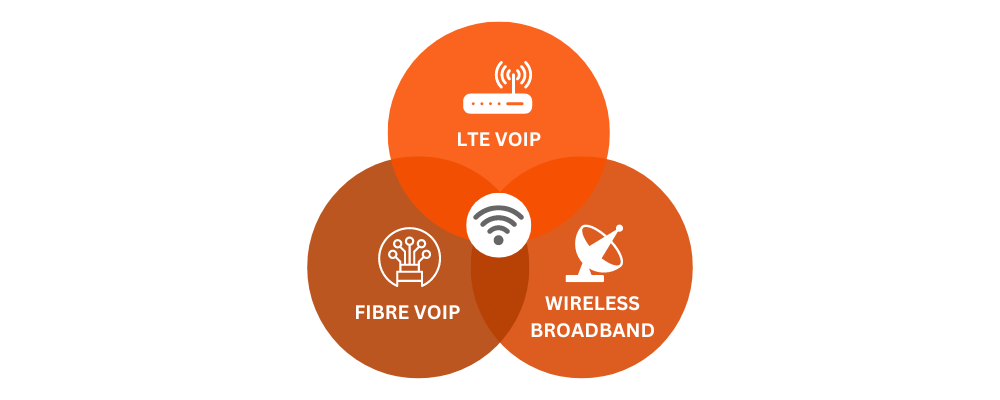
3. Hardware, Installation and Setup of Your Cloud PBX System
While cloud PBX systems eliminate the need for extensive on-site hardware, there may still be expenses related to IP phones, headsets, or other compatible devices that businesses want to provide for their employees to improve the experience and effectiveness while using the cloud-hosted system.
Additionally, some providers include installation and setup services in their package/plan prices, while others charge a separate fee for these services.
Usually, cloud-hosted PBX systems can be set up in several configurations which impact their recurring and once-off pricing:
Smartphone and PC/MAC-only Virtual PABX Setups
Customers who do not require desk-based IP phones can simply use their smartphone (iOS or Android) via an app designed for the system or their PCs as an extension of the virtual PABX. By doing this, businesses can save on the cost of onsite hardware such as IP phones and office cabling.
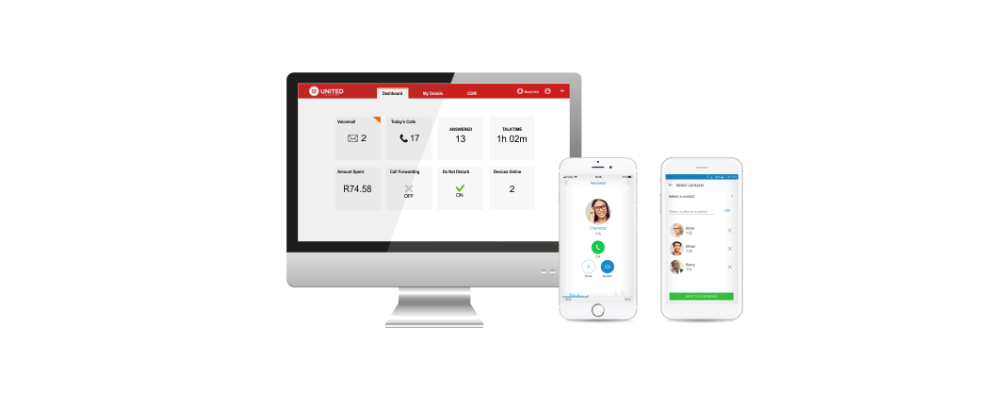
On-Site IP Phones & Cloud PBX Setup – Businesses can also choose to use cordless and desktop IP phones in their offices for a number of reasons, including the more traditional feel of a handset that is also equipped to access the features associated with your cloud PBX systems. This hardware can often be rented from your provider or purchased outright.
Below are examples of IP phones offered by United Telecoms. Existing network cabling and network switches can be used for IP phones on a Hosted Telephone System.
Hosted PBX Handsets
4. Usage patterns: Service Provider Costs and Call Volume
When assessing the pricing of cloud PBX systems, it’s crucial to consider your usage patterns.
Depending on the provider and plan, metrics such as call volume and call rates may factor into the monthly cost of your hosted PBX solution. For instance, a basic plan might include a set number of minutes or phone calls per month, with additional charges for exceeding these limits, while a premium plan may provide greater allowances at a higher price point.
The number of simultaneous calls your business will handle may also impact the costs associated with monthly usage patterns. Plans with higher concurrent call capacities may be more expensive, as they require more robust infrastructure and resources from the provider. This means businesses with high call traffic may need to invest in more advanced plans to meet their needs.
In addition, you might encounter differences in costs between local calls and international calls. Depending on the provider and plan, international calls might be charged at a higher rate.
United voice lTE VoIP packages and Pricing
5. Features & Customisation: Softphone integration, call recording & more of Your Cloud Phone System
The different features offered by hosted PBX solutions and their customisation options can influence the monthly cost of your system.
While standard cloud PBX packages or plans will usually include essential features such as call forwarding and voicemail, premium plans will allow a business to unlock more advanced features such as compliant call recording, interactive voice response (IVR), CRM integration, and advanced analytics. In some cases, more advanced features might be an extra cost, rather than falling under a set plan.
By evaluating the cost and benefits of additional features and customisation, businesses can choose a pricing plan that maximises value and efficiency.
6. Number porting
Number porting is the process of transferring your existing phone numbers to a new cloud PBX provider. The cost of number porting can vary significantly between providers, but is usually in the region of R100 – R250 per number.
This is almost always a once-off additional cost that needs to be considered during the setup phase. It may scale depending on the number of numbers being ported.
Numbers can be ported from various providers around South Africa, including Telkom, and can take anywhere from 2 days to 4 weeks. Number porting involves a few steps, including settling any outstanding payments with your landline provider, which may be a cost consideration during this process.

7. Managed and un-managed services
Choosing between managed and unmanaged services is a significant factor that can impact the cost of your cloud PBX system. Managed services typically come at a higher price but offer comprehensive support, including hands-on system monitoring, maintenance, and troubleshooting. This can be particularly beneficial for businesses without in-house IT expertise, as it ensures a higher level of service and faster resolution of any issues that arise.
On the other hand, unmanaged services are generally less expensive but require the business to handle the day-to-day management responsibilities with support from their provider. This option might be suitable for companies that can manage their system and hosting internally.
However, the potential cost savings must be weighed against the time and resources required to manage the system effectively.

Choose Your Cloud Phone System Pricing Plan And Get Connected Today
We’ve explored the various factors that influence the pricing of cloud phone system plans, including extensions, hardware and peripherals, usage patterns, features and more.
If you’re interested in learning more about cloud PBX, we suggest exploring our phone system resources including our ultimate guide to cloud PBX in South Africa and 5 ways to know if you are site-ready for hosted PBX.
We also encourage you to explore our cloud PBX solutions, including pricing, features, our softphone extension and IP handset options.
By choosing our United Voice cloud PBX solutions, you can ensure seamless communication capabilities, bolstered by our robust support network and service options.
Contact our friendly team of telecommunications specialists to discuss your current phone system setup and get started with Cloud PBX. You can also use the instant chat feature at the bottom right of your screen.


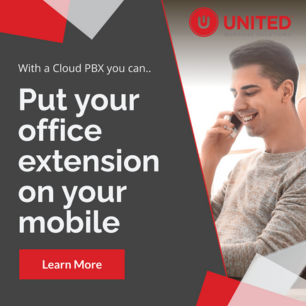


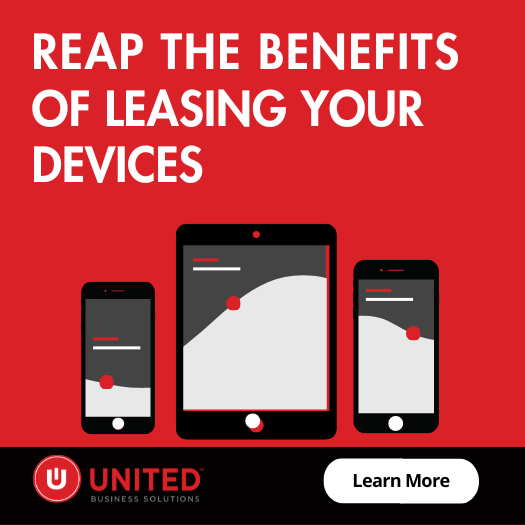


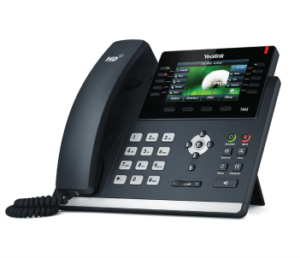
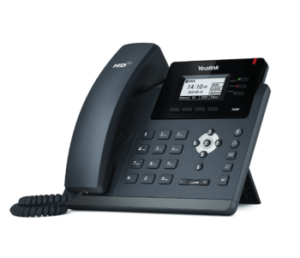
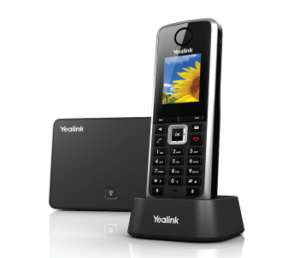
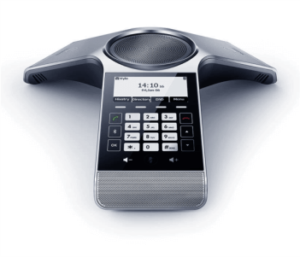
Got questions? Contact our experts today.
We service the following locations in South Africa
Western Cape: Cape Town, Belville, Paarl, Stellenbosch, Somerset West, Vredendal, Hout Bay, Green Point, Bloubergstrand, Durbanville, Melkbosstrand.
Eastern Cape: Port Elizabeth, Knysna, East London, George.
Kwa-Zulu Natal: Durban, Pinetown, Ladysmith, Newcastle, Ballito, Port Shepstone, Pietermaritzburg, Umhlanga, Westville, Hillcrest, Amanzimtoti.
Gauteng: Johannesburg, Vereeniging/Vaal, Sandton, Midrand, Pretoria, Centurion, Randburg, Roodepoort, Germiston, Alberton, Edenvale, Menlo Park.
Free State: Bloemfontein, Welkom, Bethlehem.
Mpumalanga: Witbank, Nelspruit.
Northern Cape: De Aar, Kimberley, Repra (Upington Area).
North West: Klerksdorp, Mafikeng.
Limpopo: Phalaborwa, Polokwane/Pietersburg.
Outside South Africa: Botswana, Zimbabwe, Swaziland, Namibia, Mozambique.
Get In Touch
Head Office
19 Trinity Close
Cambridge Commercial Park
Paulshof
Sandton
Tel: 086 001 8500
Email: info@unitedtelecoms.net
6 Edison Way
Century City
Cape Town
Tel: 086 001 8500
Email: info@unitedtelecoms.net
12 Sookhai Place
Derby Downs Office Park
Westville
Tel: 086 001 8500
Email: info@unitedtelecoms.net
What Our Customers Say
“Once we approved the installations we were kept up to date daily with the levels of progress on our various sites and were very impressed with the final installation”
Spear Properties
We're the experts so that you don't need to be!
PBX Phone System
Beginner's Guide
Voice & Hosted PBX
Resources
PABX Relocation and
Reinstallation
PBX Phone System
Resources